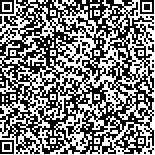| 引用本文: | 许高奇,张轶雯,郑小卫,刘宇佳,孔思思,李莉,黄萍.基于蒙特卡洛模拟法评估阿帕替尼漏服及补服用药合理性[J].中国现代应用药学,2021,38(20):2591-2595. |
| XU Gaoqi,ZHANG Yiwen,ZHENG Xiaowei,LIU Yujia,KONG Sisi,LI Li,HUANG Ping.Evaluation of Rationality of missed and remedial dosage regimens of apatinib Based on Monte Carlo simulation Method[J].Chin J Mod Appl Pharm(中国现代应用药学),2021,38(20):2591-2595. |
|
| |
|
|
| 本文已被:浏览 1533次 下载 799次 |

码上扫一扫! |
|
|
| 基于蒙特卡洛模拟法评估阿帕替尼漏服及补服用药合理性 |
|
许高奇1,2, 张轶雯3, 郑小卫3, 刘宇佳3, 孔思思1,2, 李莉4, 黄萍3
|
|
1.中国科学院大学附属肿瘤医院(浙江省肿瘤医院);2.中国科学院肿瘤与基础医学研究所, 杭州 310022;3.浙江省人民医院药剂科, 杭州 310014;4.浙江省淳安县第一人民医院药剂科, 杭州 311700
|
|
| 摘要: |
| 目的 应用蒙特卡洛模拟(Monte Carlo simulation,MCS)法评估阿帕替尼漏服及补服给药方案,为临床合理用药提供理论依据。方法 根据阿帕替尼群体药动学(population pharmacokinetic,PPK)模型,以每天1次口服850 mg为给药方案,应用NONMEM软件对晚期术后胃癌患者不同服药场景[遵医嘱服药、漏服后不补服、漏服后不同时间点补服(6,12,18 h)、漏服后次日(24 h)双倍剂量补服]分别进行5 000次MCS。计算以上各场景中偏离个体治疗窗(individual treatment window,ITW)的人群比例和>5%人群偏离ITW的持续时间(持续时间均以>5%人群计,下同),评估不同场景的用药合理性。结果 患者遵医嘱服药时,预测血药浓度稳定在ITW内;漏服后不补服时,预测血药浓度波动增大,低于ITW的人群比例可达46.26%(漏服当日)和7.52%(漏服次日),持续时间达24.4 h和1.6 h,次日正常服药后血药浓度可上升且基本落在ITW内;漏服后,补服前低于ITW的人群比例和持续时间随补服时间的延长而增加,补服后高于ITW的人群比例和持续时间也随补服时间的延长而增加。结论 根据阿帕替尼MCS结果,为避免药物漏服及补服后可能出现的血药浓度波动增大,患者应提高用药依从性,避免漏服药物。一旦出现药物漏服,若漏服时间过长,不建议进行剂量补服或双倍剂量补服,次日正常服药即可。 |
| 关键词: 阿帕替尼 用药依从性 蒙特卡洛模拟 |
| DOI:10.13748/j.cnki.issn1007-7693.2021.20.021 |
| 分类号:R969.3 |
| 基金项目:浙江省自然科学基金项目(LQ17H310002);浙江省医药卫生科技计划项目(2017KY244,2018KY148,2019KY559);CSCO临床肿瘤学研究基金(Y-HR2016-013) |
|
| Evaluation of Rationality of missed and remedial dosage regimens of apatinib Based on Monte Carlo simulation Method |
|
XU Gaoqi1,2, ZHANG Yiwen3, ZHENG Xiaowei3, LIU Yujia3, KONG Sisi1,2, LI Li4, HUANG Ping3
|
|
1.Cancer Hospital of the University of Chinese Academy of Sciences(Zhejiang Cancer Hospital);2.Institute of Cancer and Basic Medicine(IBMC), Chinese Academy of Sciences, Hangzhou 310022, China;3.Department of Pharmacy, Zhejiang Provincial People's Hospital, Hangzhou 310014, China;4.Department of Pharmacy, The First People's Hospital of Chun'an, Hangzhou 311700, China
|
| Abstract: |
| OBJECTIVE To evaluate missed and remedial dosage regimens of apatinib by Monte Carlo simulation(MCS) method, to provide theoretical basis for clinical rational use of drugs. METHODS According to population pharmacokinetic(PPK) model of apatinib(850 mg, qd, po), 5 000 MCS were estimated for various scenes[full compliance, missed doses without remediation, remedial dosage regimens(6, 12, 18 h), and 24 h double doses the next day] by NONMEM for patients with advanced metastatic gastric cancer after gastric surgery. The proportion of people outside the individual treatment window(ITW) and duration outside the ITW(the duration was based on >5% of the population, the same below) of the missed and remedial regimens were calculated, and the rationality of each scenario were analyzed. RESULTS Predicted concentration continues to be stable within ITW in full compliance. When missed one dose without remediation, the fluctuation of predicted concentration was increased, and the proportions of people below ITW were 46.26%(the same day) and 7.52%(the next day), and the duration were 24.4 h(the same day) and 1.6 h(the next day). After taking the medicine at next time, the concentration can rise and be stable within ITW. When one dose was missed, the proportion of people under ITW and the duration were increased with the prolongation of remedial time before remediation,and the proportion of people above ITW and the duration were increased with the prolongation of remedial time after remediation. CONCLUSION According to the results of apatinib MCS, patients should improve medication adherence and avoid missed medications for avoiding the increased fluctuation of blood concentration because of missed dose and remadiation. If the time of missed dose was too long, remedial dosage regimens or double dose supplementation is not recommended, just take the medicine normally the next day. |
| Key words: apatinib medication adherence Monte Carlo simulation |
|
|
|
|
